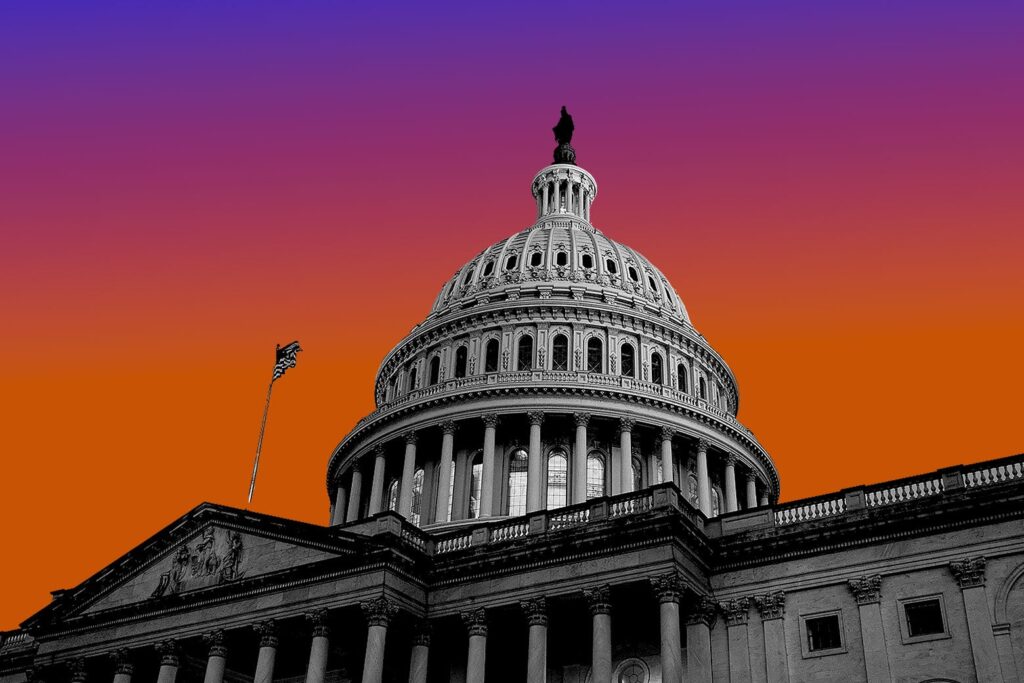
The debate over artificial intelligence (AI) regulation took a surprising turn in Congress recently, as a proposed 10-year moratorium on state-level AI laws was removed from a significant legislative package. This development has left both AI advocates and critics pondering the future of technology governance in the United States.
The legislative package, often referred to as the “One Big Beautiful Bill,” has been a focal point of intense debate in Washington. While the removal of the moratorium might seem like a setback for AI proponents, industry supporters maintain confidence due to other favorable provisions that remain intact.
The Legislative Journey of AI Regulation
The AI regulation debate has been a long-standing issue, with lawmakers and industry leaders grappling over the best approach to manage the rapidly advancing technology. The initial proposal for a 10-year moratorium was seen by many as a way to provide a stable regulatory environment, allowing AI technologies to develop without the burden of varying state laws.
However, critics argued that such a moratorium would hinder states’ ability to address unique challenges posed by AI, particularly in areas like privacy, employment, and ethical use. The removal of this provision reflects a compromise, balancing the need for innovation with the necessity of oversight.
Industry Reaction and Remaining Support
Despite the setback, AI industry leaders remain optimistic. The bill still contains several measures that support AI development, such as funding for research and incentives for companies to invest in AI technologies. These provisions are seen as critical to maintaining the United States’ competitive edge in the global AI race.
“While the moratorium’s removal is disappointing, the bill still offers significant support for AI innovation,” said Will Oremus, a technology news analysis writer for the Washington Post.
Oremus further noted that the ongoing legislative process is a testament to the complex nature of AI governance, which requires a delicate balance between fostering technological growth and ensuring public safety.
Expert Opinions and Historical Context
Experts in the field of technology law have weighed in on the implications of the legislative changes. Many draw parallels to the early days of the internet, when regulatory frameworks struggled to keep pace with technological advancements. The current AI debate echoes those challenges, highlighting the need for adaptable and forward-thinking policies.
Dr. Emily Chen, a professor of technology policy at Stanford University, emphasized the importance of learning from past experiences. “The internet’s early regulatory missteps taught us valuable lessons about the need for flexible, yet robust, governance structures,” she explained. “AI presents similar challenges, and we must be proactive in crafting policies that address both current and future issues.”
Looking Ahead: The Future of AI Regulation
As the legislative process continues, stakeholders from various sectors will undoubtedly remain engaged in shaping the future of AI regulation. The removal of the moratorium opens the door for states to experiment with their own AI laws, potentially leading to a patchwork of regulations across the country.
This development could foster innovation by allowing states to serve as testing grounds for different regulatory approaches. However, it also raises concerns about the potential for regulatory fragmentation, which could complicate compliance for companies operating nationwide.
According to a recent study by the Brookings Institution, “A fragmented regulatory landscape could impede the growth of AI by creating uncertainty and increasing operational costs for businesses.”
Conclusion: Navigating the Path Forward
The removal of the 10-year moratorium marks a pivotal moment in the ongoing debate over AI regulation. As the legislative process unfolds, it will be crucial for lawmakers, industry leaders, and the public to engage in open dialogue and collaboration to craft policies that balance innovation with accountability.
Ultimately, the outcome of this debate will shape the future of AI in the United States, influencing not only technological development but also the broader societal impacts of AI integration. As the conversation continues, all eyes will be on Congress to see how it navigates this complex and rapidly evolving landscape.






